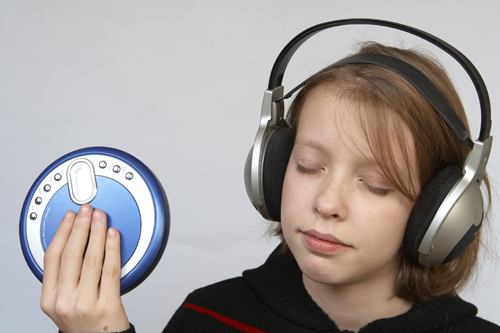

<p><img class=" alignright size-full wp-image-82" style="margin: 5px; float: right;" src="http://schoolnewsnz.fastrackdev.com/wp-content/uploads/2011/10/SN14_-_Health__Safety_-_Hearing_Loss__Prevention_-_1.jpg" alt="SN14 - Health Safety - Hearing Loss Prevention - 1" width="253" height="168" />With the ever-increasing use of headphones for music and other technology, and generally increasing noise levels,</p>
<p> <!--more--> </p>
<p>it&#8217;s really important young people learn to protect their hearing so that it will last them into adult life.</p>
<p>Once you have lost your hearing, the damage is nearly always irreversible and the time lag between exposure and diagnosis may often be years. Therefore, the earlier children understand how loud is too loud, the better their hearing will be long term.</p>
<p>The good news is that noise damage is easily preventable.</p>
<p>The Pindrop Foundation, a registered New Zealand charity, is addressing this issue with the support of ACC and Cochlear Asia Pacific Ltd through its &#8216;Listen Up!&#8217; programme.</p>
<p>&#8220;With Noise Induced Hearing Loss reaching epidemic proportions, the Pindrop Foundation knew it needed to do something to address the issue,&#8221; says Lee Schoushkoff, CEO of the Pindrop Foundation.</p>
<p>The programme, which is targeted at eight to 12 year-olds, forms the foundation for behaviour change and safe hearing practices. It is fun, interactive and educational. It teaches kids how their ears work, the science behind hearing and the physics of noise.</p>
<p>ACC programme manager Dr John Wallaart says it&#8217;s a fun programme filled with activities to get children engaged.</p>
<p>&#8220;It&#8217;s not just a dry lesson. The kids get to use sound meters to work out how loud is too loud, and use ping pong balls, pipe cleaners and tuning forks.&#8221;</p>
<p>The Listen Up! Programme has been developed from the American programme, &#8216;Dangerous Decibels&#8217;, which is in 26 countries worldwide and rapidly expanding.</p>
<p>Dangerous Decibels is the brain child of Professor William Martin (a professor of Otolaryngology/Head &; Neck Surgery at the Oregon Health and Science University) and his team.</p>
<p>In February, the Pindrop Foundation and ACC partnered to bring the Dangerous Decibels team to New Zealand and they are returning in November this year to run a free Listen Up! Educator Workshop Series to offer schools the opportunity to learn about the programme and become programme educators.</p>
<p>&#8220;We would love to see school personnel, including teachers, parent-helps, teacher aides and student teachers take up this amazing opportunity to become Listen Up! educators and ensure sustainability of the programme for schools and children,&#8221; Schoushkoff says.</p>
<p>After the workshop, attendees will take away with them everything they need to successfully teach children how to look after their precious hearing.</p>
<p>In addition, schools have the opportunity to raise money through the initiative, via the Pindrop Silent-a-Thon. By participating in the Pindrop Silent-a-Thon, schools can raise vital funds to grow the programme, with 20 per cent of the money raised going back to the school.</p>
<p>The aim of the Pindrop Foundation, ACC and Cochlear Asia Pacific Ltd is to educate 45,000 children through the programme by mid-2012.</p>
<p>The programme has already been used by 18 schools in the Auckland region to date.</p>
<p><strong>Noise-induced hearing loss in the workplace</strong></p>
<p>NIHL (noise-induced hearing loss) is a major issue in this country with costs to ACC close to $70 million per annum.</p>
<p>So the earlier younger children can learn about the risks and change their behaviour, the better chance they will have of protecting their hearing.</p>
<p>Hearing loss has a dramatic impact on the people affected. Some signs of noise-induced hearing loss are obvious, such as the need to turn up the volume on the TV or radio, not being able to hear others when there is background noise or asking people to speak up. It&#8217;s the lesser-known physiological effects, such as depression, as people become socially isolated from their family and friends that may become a further issue.</p>
<p>Tips for children to prevent hearing damage</p>
<p>• Walk away (move further away from the source of the noise)</p>
<p>• Turn down the volume</p>
<p>• Wear hearing protection</p>
<p> ;</p>
<p><strong>For more information contact:</strong></p>
<p>Pindrop Foundation CEO, Lee Schoushkoff, mobile 021 757 423 or email lee@pindrop.org.nz</p>
<p>ACC programme managers, Dr John Wallaart, phone (04) 816 5409 or email john.wallaart@acc.co.nz or Ann Rose at (04) 816 5401 or e-mail ann.rose@acc.co.nz</p>
<p>For more information on the Listen Up! Educator Workshop Series email Kitty Lister on: kitty@pindrop.org.nzor visit: <a href="http://www.listenup.co.nz" target="_blank">www.listenup.co.nz</a></p>

EXCLUSIVE: Teachers used to be paid two to three times more than minimum wage workers,…
After an “overwhelming” vote to reject the latest Government offer, secondary school teachers will begin…
Second-language learning should be compulsory, says a new report from a forum bringing together academics,…
A new entitlement aimed to improve access to learning support coordinators for schools with students…
Educators have raised questions about the Ministry of Education’s new secondary school subjects, set to…
Professional learning and development (PLD) for teachers needs to be higher impact for teachers and…
This website uses cookies.